In an era where agriculture must strike a balance between feeding a growing population and preserving soil health, high-yield organic fertilizer production technology is emerging as a cornerstone of modern, sustainable farming. This innovative approach combines traditional organic practices with cutting-edge industrial processes to transform agricultural waste into efficient, nutrient-rich fertilizers, enhancing crop yields without compromising environmental values.
As global farmers grapple with rising input costs, land degradation, and pressure to reduce chemical use, this technology offers a way forward – combining high efficiency with environmental principles. Whether you are a smallholder, commercial grower, or agribusiness investor, understanding the workings of high-yield organic fertilizer systems can redefine your approach to farming.
In this in-depth guide, we will explore the working principle of high-yield production technology, which equipment is indispensable, how to apply it to various crops, and why LANE’s solutions can help global customers increase profits and soil quality.
Why ‘High Yield’ Matters in Organic Fertilizer Production
When it comes to organic farming, “yield” isn’t just about how much fertilizer you produce—it’s about how efficiently you convert waste into value, how consistently your product performs in the field, and how much return you generate for every unit of input. That’s why high-yield organic fertilizer production technology isn’t a luxury—it’s a necessity.
1.Meeting Growing Global Demand
With the global population expected to surpass 9 billion by 2050, farmers must grow more food on the same or even shrinking land. This drives demand for effective fertilizers that are not only organic but also potent and consistent. High-yield production systems ensure that the fertilizer you produce can meet real agricultural needs—at scale.
2.Lowering Production Costs per Ton
Traditional organic fertilizer production often suffers from low efficiency—meaning more energy, more labor, and more time to produce each ton. A high-yield organic fertilizer production technology optimizes the conversion of raw materials (such as manure, crop residues, and green waste) into usable product, dramatically lowering cost per ton and increasing profitability.
3.Unlocking New Markets
High output allows producers to move beyond small-scale, local distribution. When you’re producing consistent, high-quality fertilizer in sufficient volume, you’re ready to tap into larger commercial contracts, government procurement programs, and even international markets. Many of LANE’s clients have expanded into export through this route.
4.Consistent Product Quality
Yield is not just about quantity—it’s also a reflection of control. High-yield organic fertilizer lines rely on precise formulation, controlled fermentation or composting, uniform granulation, and advanced drying technologies. This means you get a stable NPK ratio, good moisture control, long shelf life, and uniform application results for end users.
5.Environmental Efficiency
Higher yield organic fertilizer also means less waste. Efficient systems minimize emissions, maximize resource utilization, and reduce the environmental footprint of production. This aligns with sustainable agriculture goals and regulatory trends worldwide, giving producers a competitive edge.
Core Components of High-Yield Organic Fertilizer Production Technology
Behind every high-yield organic fertilizer factory lies a highly integrated set of equipment and process systems that can efficiently, reliably and on a large scale convert organic waste into high-value fertilizers. Below are the core components that make high-yield organic fertilizer production technology work effectively:
1.Raw Material Collection and Pre-Processing
The process begins with the collection of organic raw materials—animal manure, crop residues, green waste, or even kitchen waste. These materials are crushed and blended to ensure a uniform carbon-to-nitrogen (C/N) ratio and proper moisture content, laying a solid foundation for efficient microbial fermentation.
A feed hopper or loading conveyor ensures continuous and automated feeding of the materials into the system.
2.Efficient Composting with Advanced Turning Equipment
Composting is at the heart of organic fertilizer production. To speed up aerobic decomposition while maintaining oxygen and temperature levels, the production line employs crawler type compost turners or groove type compost turners. These machines regularly agitate the compost piles, promoting microbial activity and reducing composting time from months to just a few weeks.
LANE’s turners are built with heavy-duty hydraulics, intelligent control systems, and robust mobility—ideal for both large-scale open composting yards and indoor fermentation trenches.
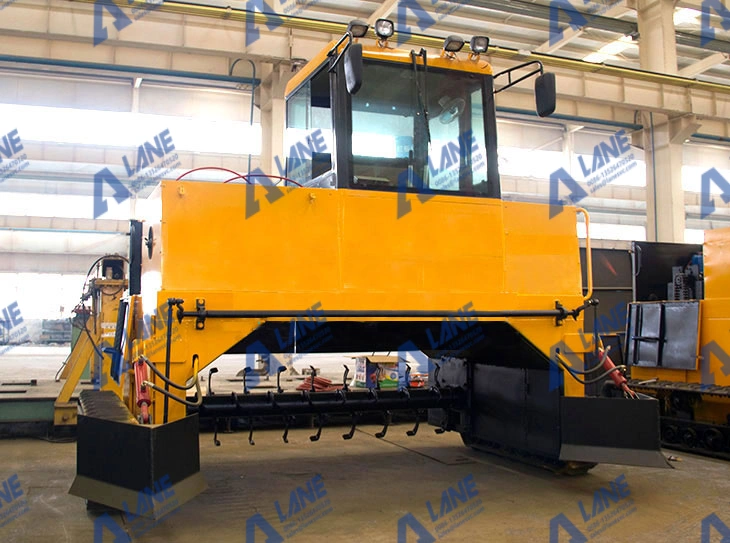
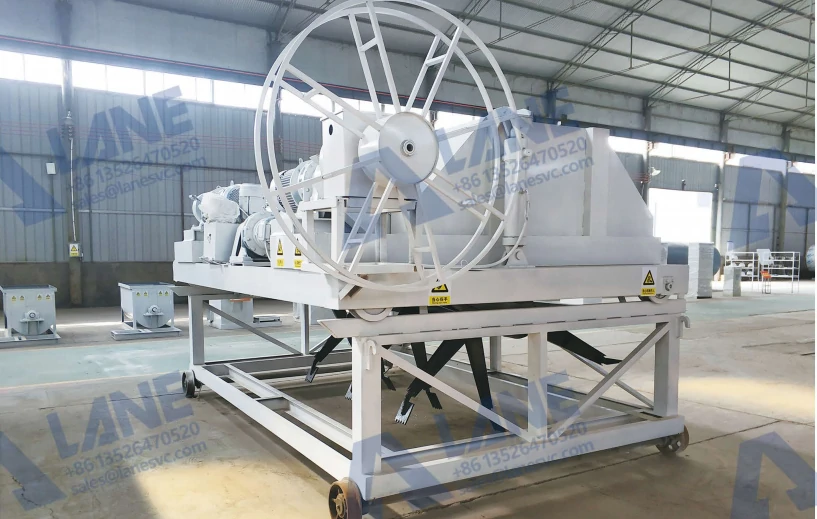
3.Integrated Screening and Nutrient Fortification
After composting, the material is passed through a rotary screening machine to remove oversized particles, impurities, or unfinished compost. The screened compost is then moved to a mixing and fortification system, where essential nutrients like nitrogen, phosphorus, and potassium (NPK), as well as beneficial microbes or trace elements, are added to enhance the nutritional profile.
This integration of screening and enrichment ensures that every batch of organic fertilizer not only meets but exceeds agricultural expectations for crop yield and soil health.
4.Granulation with Stirring Pin Granulators
Granulation is the transformation of powdered compost into stable, easy-to-handle granules. For high-yield lines, the stirring pin granulator or vertical ring die granulator is the primary machine. It offers high efficiency, adaptability to different raw materials, and consistent granule size.
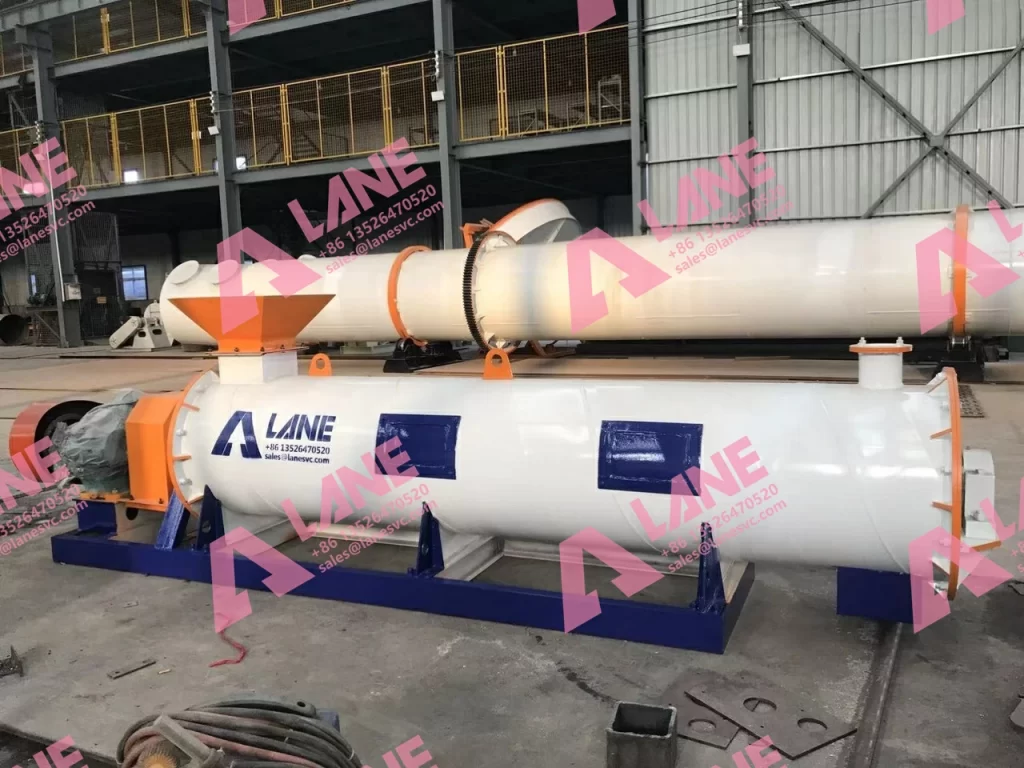
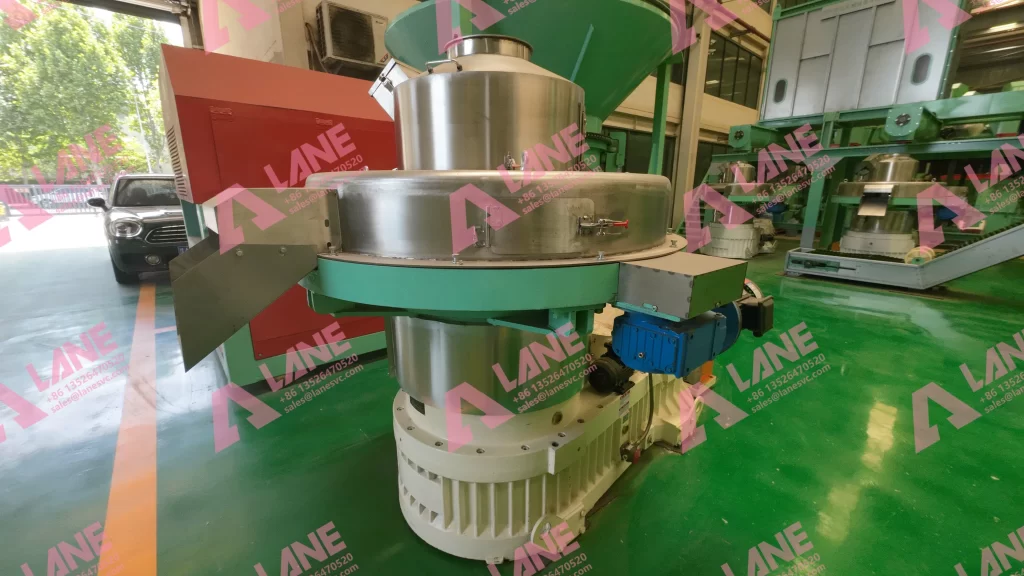
To achieve a smoother, more market-friendly appearance, the granules are further processed with a polishing machine, which rounds the particles and improves flowability. The result: attractive, high-quality fertilizer granules that resist caking and perform well in modern spreaders.
5.Drying, Cooling, and Packaging
Granulated fertilizer is dried using a rotary drum dryer, reducing moisture content to below 10% for long shelf life. It then passes through a cooling machine to avoid heat damage during storage or bagging.
Finally, the product is conveyed to an automated packaging system, which includes weighing, bagging, sealing, and optional palletizing. This streamlines the end stage of production, improving throughput and reducing manual labor.
Why Technology Matters in High-Yield Organic Fertilizer
| Problem with Traditional Methods | How Technology Solves It |
| Low nutrient concentration | Granulation concentrates nutrients, improving efficiency |
| Variable quality | Electronic sensors and controls standardize compost maturity |
| High labor demand | Automated turners and mixers cut manpower needs |
| Moisture inconsistency | Dewatering and drying systems deliver stable moisture profile |
| Storage and transport issues | Coated, screened granules avoid caking and volume degradation |
LANE Advantage: Innovation at Every Stage
In terms of high-yield organic fertilizer production technology, LANE is not merely a supplier; it is also your strategic partner for sustainable development. Every stage of your production line is supported by innovative, precise engineering design and rich practical experience.
Customized factory design:
No matter your annual production volume is 5,000 tons or 50,000 tons, LANE can tailor a complete high-yield organic fertilizer production line for you based on your raw material type, local regulations and budget. From the re-packing machine to the polishing machine, each unit is integrated to maximize production and minimize waste.
Reliable Automation:
The production system of LANE employs intelligent automation technology, which can reduce manual labor and ensure consistent performance. Our control panel offers real-time monitoring and fault detection capabilities, helping operators identify problems in advance and minimize downtime.
High-Efficiency Equipment:
With machines like the stirring pin granulator, crawler-type compost turner, and rotary dryer, every component is engineered for durability and throughput. Our equipment handles high-viscosity materials, high-humidity compost, and variable inputs with ease.
Export-Ready Quality:
With CE, ISO, and other global certifications, LANE’s equipment meets international standards. We have successful installations in over 30 countries — from Southeast Asia to Eastern Europe — proving that LANE is trusted worldwide.
Service that Lasts Beyond Delivery:
Our support doesn’t end with equipment shipment. We provide on-site installation guidance, operator training, remote troubleshooting, and spare parts supply — ensuring your high-yield organic fertilizer production line keeps running at peak efficiency.
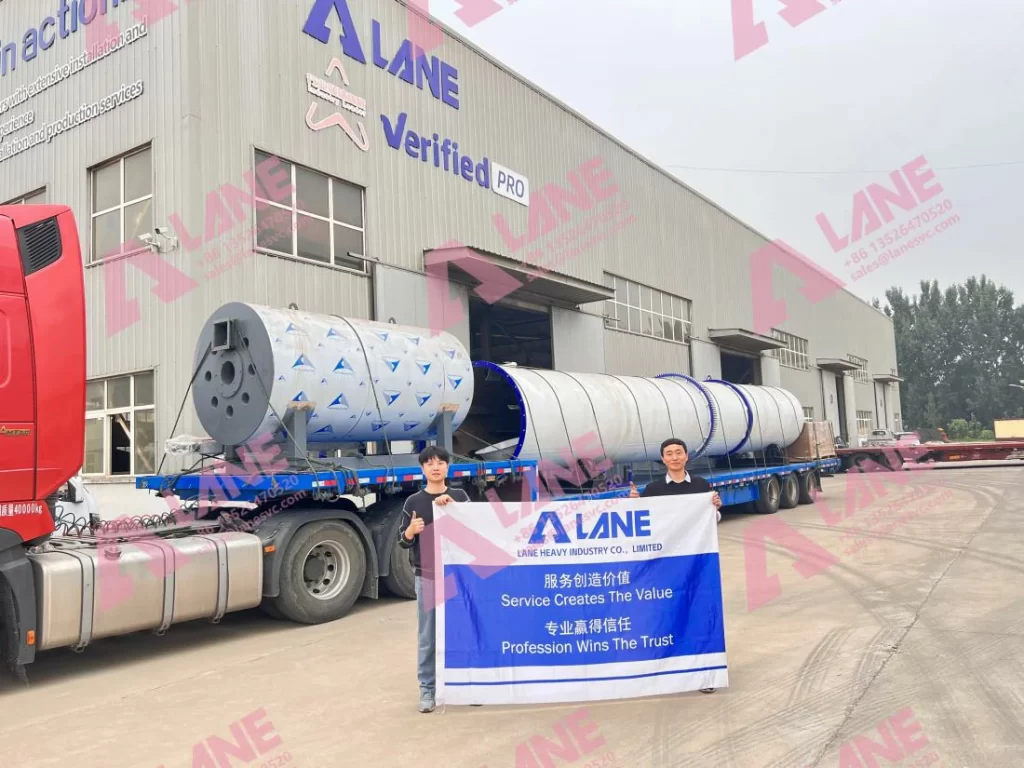
Diverse Applications Across Modern Agriculture
The impact of high-yield organic fertilizer production technology extends far beyond individual farms or factories. Its application is driving changes in multiple areas of modern agriculture, each with its own unique demands and opportunities.
Large-Scale Crop Farms:
Corn, wheat, and rice growers use organic granules to improve soil fertility and reduce chemical dependence. The slow-release nature of granular organic fertilizer helps maintain consistent nutrition across growing seasons.
Greenhouse Operations:
In high-value environments like greenhouses, nutrient-rich organic granules improve soil microbiology without salinizing the root zone. The granules are easy to handle, apply, and mix with other growing media.
Fruit and Vegetable Production:
Fruit trees and vegetable plots benefit from enhanced root development and improved resistance to disease. Organic fertilizer granules promote healthier, more resilient crops that meet both quality and yield targets.
Eco-Friendly Urban Agriculture:
In cities, compost-based granules made from municipal or kitchen waste provide a sustainable nutrient source for rooftop gardens, community farms, and vertical growing systems — turning waste into value at the local level.
Organic Certification Programs:
Many farmers adopt high-yield organic fertilizer production technology to meet certification standards and access premium markets. LANE’s granulation and composting equipment complies with organic regulations, making your operation export- and certification-ready.
FAQ: High-Yield Organic Fertilizer Production Technology
Q1: What defines “high-yield” in organic fertilizer production?
“High-yield” refers to both the volume of fertilizer produced and the nutrient efficiency of the end product. Using optimized composting, granulation, and drying equipment, LANE’s high-yield organic fertilizer production technology allows producers to increase daily throughput while enhancing the bioavailability of nutrients.
Q2: What raw materials can be used in this production line?
You can use a wide range of inputs — livestock manure, crop straw, green waste, kitchen waste, and more. The key is proper pretreatment and composting. LANE helps assess and adjust formulations to ensure balance and consistency.
Q3: Is this technology suitable for tropical or cold climates?
Yes. LANE’s systems are adaptable to different environmental conditions. For tropical zones, we offer enhanced aeration systems; for cold climates, optional thermal insulation or indoor plant designs maintain composting performance year-round.
Q4: Can I start small and expand later?
Absolutely. Our systems are modular. You can start with a basic setup and add compost turners, polishers, bagging lines, or automation modules as demand grows. It’s a scalable approach aligned with your budget and goals.
Q5: Does LANE offer support after delivery?
Yes — from operator training and remote diagnostics to spare parts supply and technical upgrades, LANE is committed to long-term support. We also assist with exporting documentation and compliance if you plan to sell internationally.
High-Yield Organic Fertilizer Production Technology as a Growth Engine
The transformation of modern agriculture towards sustainability is not merely a trend, but a revolution. And the high-yield organic fertilizer production technology is the core of this revolution. For farms, cooperatives and enterprises that aim to increase crop yields, soil health and profitability without harming the environment, this technology offers an expandable and practical solution.
With the increasing demand for organic agricultural products and eco-certified fertilizers in both domestic and international markets, investing in efficient and high-yield systems is no longer an optional choice but a strategic one. Whether you are starting from scratch or upgrading an existing facility, LANE can provide future-oriented solutions through modular, customizable and exportable equipment. From precision granulation to intelligent composting and nutrient fortification, every step of the process is engineered to deliver value — not just for one harvest, but for many seasons to come.
For more details, please feel free to contact us.
Henan Lane Heavy Industry Machinery Technology Co., Ltd.
Email: sales@lanesvc.com
Contact number: +86 13526470520
Whatsapp: +86 13526470520